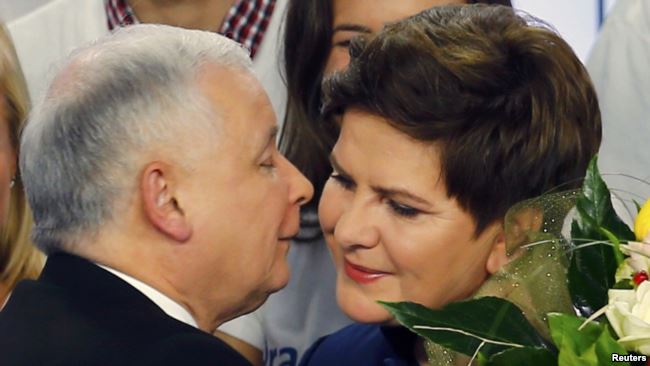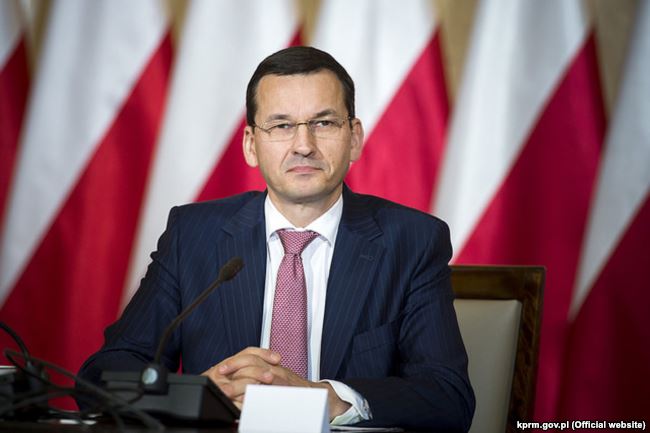The designation of Mateusz Morawiecki as Poland's new prime minister has already given rise to dozens of comments regarding possible changes in Poland's political direction and the need to seek compromise and mutual understanding between Poland and the European Union and to resolve problems in Polish-Ukrainian relations.
In Kyiv one can hear voices accusing the former prime minister Beata Shidlo of exacerbating these relations and speculations about the possible dismissal of Minister of Foreign Affairs Witold Waszczykowski, author of the toughest pronouncements on the relations between Warsaw and Kyiv.
All these comments do not take into account one important point. The head of government has been changed in Warsaw but the ruling political party remains in power and is quite comfortable in terms of ratings and prospects. Jaroslaw Kaczynski, the actual ruler of Poland and the head of this party, remains in the driver's seat. Many observers believe that this authoritative politician is determining the future direction of the country. In this respect, Poland's political system can be compared to that of Iran with certain reservations. In that country, citizens elect the president and parliament, but the last word in determining the political order belongs with the spiritual leader, whose role is prescribed in the constitution. Jaroslaw Kaczynski did not need constitutional changes to become such as spiritual leader in Poland. His role in Polish politics is unprecedented and has no analogs either in recent Polish history or in modern Europe.
It is important to seek opportunities for informal dialogue
The spiritual leader sets the goal but bears no responsibility for its achievement. In this respect, it is quite logical to change prime ministers.
The technocrat Morawiecki may be able to deal with the issue of the growing isolation in the European Union more effectively than his predecessor Shidlo. But this is only in theory. In practice, the selection of the new prime minister coincided with voting for a controversial judicial reform that can only aggravate relations between Poland and the rest of Europe. But what will happen if Prime Minister Morawiecki fails? Nothing in particular. The ruling party will simply select a new head of government depending on the relevant tasks. The position of prime minister no longer has the "sacred" significance that it had in Polish politics in the past. The failures of the prime minister have no serious impact on the authority of the spiritual leader, on the intentions of the leadership of the ruling party, or even on its ratings. Furthermore, the foreign minister plays no role in the development of Polish foreign policy. In his speeches, including the ones dealing with Ukrainian-Polish relations, the current Minister of Foreign Affairs Witold Waszczykowski expresses the common views of the leadership and, most importantly, the attitudes of Jaroslaw Kaczynski.

These are the attitudes that will determine the development of the dialogue between Warsaw and Kyiv in the coming years. It would be naive, at the very least, to expect that the change of the head of government or the foreign affairs minister in an established system of government can change something in these relations. It is also naive to expect that a dialogue between the presidents can lead to serious changes.
President Andrzej Duda who, despite all the difficulties in the dialogue between Kyiv and Warsaw has decided to visit Ukraine, is constrained in his political opportunities. At first glance, Jaroslaw Kaczynski does not have these restrictions. And yet, this influential Polish politician is guided by public opinion. Ukrainians -- as well as other European countries -- should seek opportunities for informal dialogue with Kaczynski and the immediate circle around him. But, at the same time, they should also think about a dialogue with Polish society, which still remains an important factor in shaping political intentions. The future of the dialogue between Warsaw and Kyiv can be influenced by Kaczynski and by average Poles. For politicians and officials, there are far fewer opportunities.

